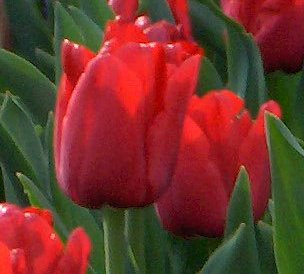A couple of people have asked what it was like teaching in Korea. They were thinking of going there and teaching themselves. I thought I'd post my answer in case more people were interested in hearing what it was like.
I had a great time in Korea. As long as you have a bachelor's degree (in any subject) you should be able to get a job. The language schools really want native-speakers who can teach conversation and listening. Research your school before you go because there are lots of bad ones that don't treat people fairly and aren't honest. Try looking in the forums at Dave's ESL Cafe. Ask the representative of any school you are considering if you can have the e-mail of a foreign teacher working there who can vouch for the school and give you information about the local life. I recommend the experience of teaching overseas. The culture shock will be substantial and you will have lots of challenges. Any kind of teaching training you can get before you go would be helpful. The university jobs are better (fewer teaching hours, better pay, and better working conditions) but you generally need a master's degree. Most schools in Korea pay for your housing and the wages are fair, so you can save money or pay down debt. I made good progress on my student loans while I was there.
Seoul is a large, very crowded, fast-paced city. It was both exciting and stressful. When things got really overwhelming, I would go to Gyungbok Palace and walk around. It is a spacious, tranquil oasis in the middle of urban mayhem. Walking through the gate, I could breathe deeply again. For interesting reading on this palace, Minsoo Kang wrote a very descriptive though scholarly essay on its long history.
I also lived in Kwangju, which is far South of Seoul. It was very interesting to see another part of Korea. Seoul is the business and population center of the whole country. Literally almost 1/3 of the total population lives in the city or in the surrounding suburbs. Kwangju is a small, provincial city that has a history of being a conservative holdout. It was the site of famous labor protests. The pace was slower and the people more relaxed and friendly. There was traffic, but it was still easier to get around. After you had been there a while, it felt like a small community; you recognized many faces when you walked around the downtown area. The surrounding countryside is very pretty. About 50 minutes away are the Bosung Green Tea Plantations, neat rows of tea bushes terraced into the mountainside. Just outside the city is a Confucian scholar's garden, Sosoewon, which is about 600 years old.
As far as the experience of being a foreigner, it was both fun and difficult. I didn't know any Korean language before I went. It was hard to adjust to being helpless in some situations, but I had people at my school helping me. The most basic, necessary things you learn pretty quickly. Thankfully, the writing system is very easy to learn, so you can sound things out and start to read subway stops and things. A lot of those signs are also written in Roman alphabet, which helps. The Korean culture sometimes keeps foreigners at a distance, but they are also hospitable and kind. Occasionally bouts of anti-Americanism break out because of political things, but I never felt unsafe.
It was a hard decision to make, leaving Korea. I was torn because I had become so comfortable there, liked my job and had good friends. At the same time I had been living far away from my family for a long time. I finally decided that it was time to return to Washington State and live near my family. The longer I stayed in Korea, the harder it would have been to leave.
Subscribe to:
Post Comments (Atom)

No comments:
Post a Comment